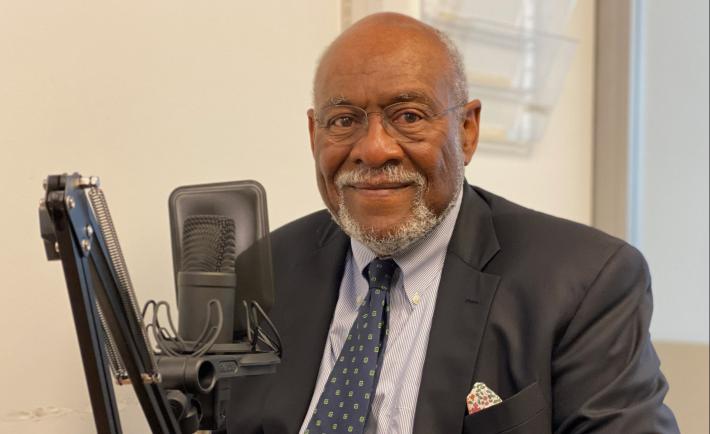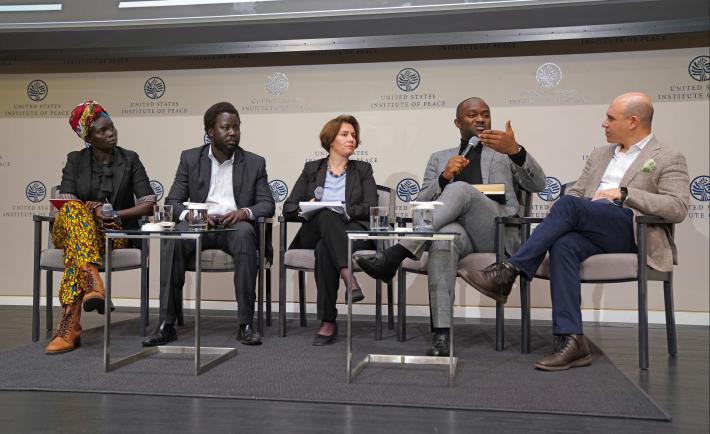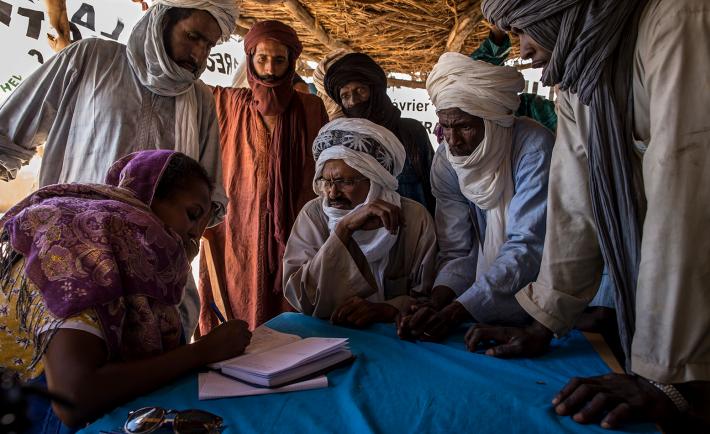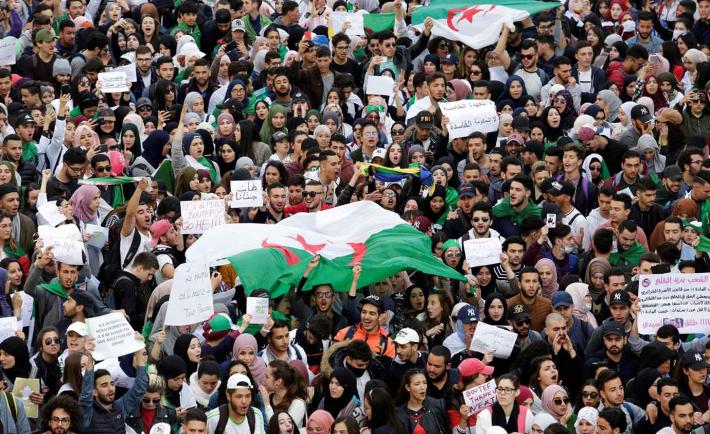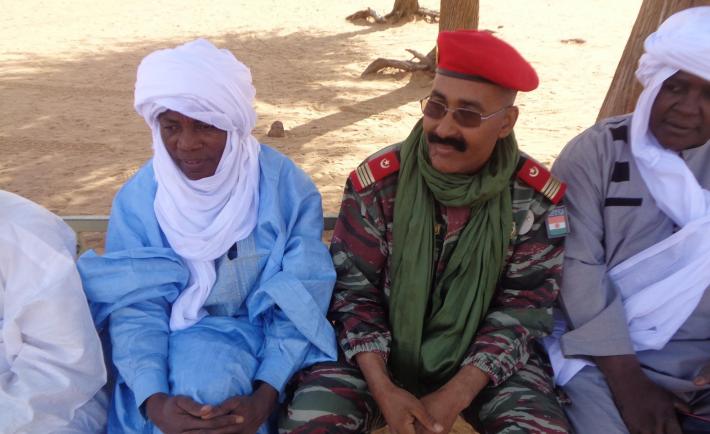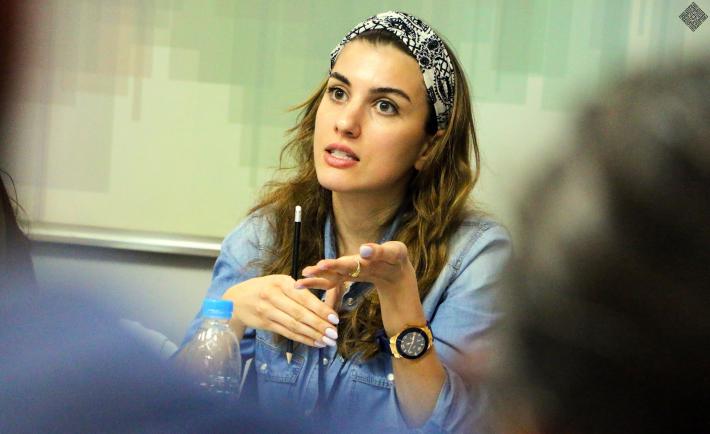NDI’s Chris Fomunyoh is once again joined by Ambassador Johnnie Carson as they discuss the steps that can be taken to strengthen democracy. They continue their conversation with their thoughts on the key challenges and opportunities facing Africa this year.
Strengthening Citizen Security through better communication (w/ Chris Fomunyoh)
How can we advance democracy and peace? (w/ Lauren van Metre)
In the latest episode of DemWorks, NDI’s Lauren van Metre is joined at the US Institute of Peace by global activists Emna Jeblaoui (Tunisia), Jacob Bul Bior (South Sudan), Samson Itodo (Nigeria) and Aluel Atem (South Sudan). They discuss new thinking about mobilizing good governance and the challenge violent extremism poses to democracy
NDI’s Governance Approach to Fragile States: People, Processes and Politics
NDI Chairman Madeleine Albright continues to actively support the US Institute of Peace’s Task Force on Extremism in Fragile States, and will participate on January 7 in a USIP, NDI, GW Bush Institute co-hosted event on “A Governance Agenda for Preventing Violence in a Fractured World”.
Not Over Yet: Latest Wave of Middle East Protests A Reminder of 2011’s Unmet Demands
Recent images of hundreds of thousands of citizens marching peacefullythrough Algerian streets demanding the resignation of their autocratic ruler offer an unmistakable and powerful analog to the 2011 Arab uprisings. The ailing and out-of-touch 82-year-old Algerian leader Abdelaziz Bouteflika seeking a fifth presidential term in a country where 70 percent of the population is under age 30 brings to mind an oblivious Hosni Mubarak tragically misreading the seriousness of the first gatherings against him in Tahrir Square. Like Mubarak, who first tried to placate young Egyptians by promising to step down “later,” Bouteflika’s advisors beggar belief by claiming that their man—rarely seen in public over the past five years—will step down after he is “reelected” yet again.
What makes some people more susceptible to disinformation?
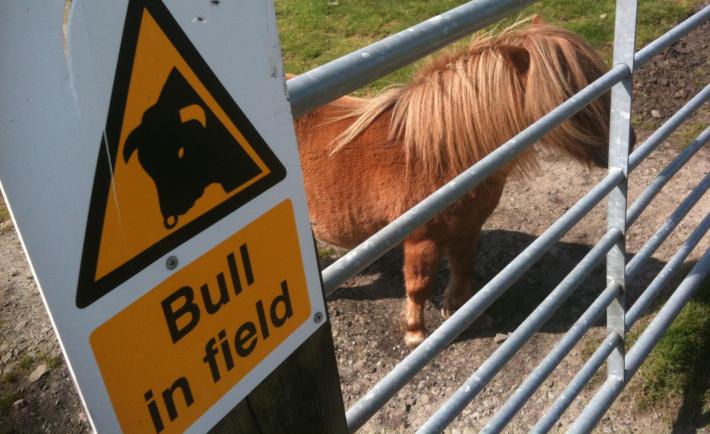
New research is shedding light on why certain people are more susceptible to disinformation and what motivates individuals to choose to join hate campaigns. Photo credit: Dave Haygarth
Disinformation is one of the thorniest problems facing citizens online around the world today. Recent reports have highlighted that the problem is not only present, but indeed it is becoming more grave in the absence of proper solutions to combat it. While considerable thought and research have been dedicated to technological solutions, efforts at understanding the human mechanics of disinformation are still nascent. Exploring what demographics are most vulnerable or most likely to be targeted, why they are receptive to disinformation, and the mechanics of how disinformation spreads within their networks online and offline is key to finding effective solutions in the long term.
Central African Republic: Can Legitimacy Last?
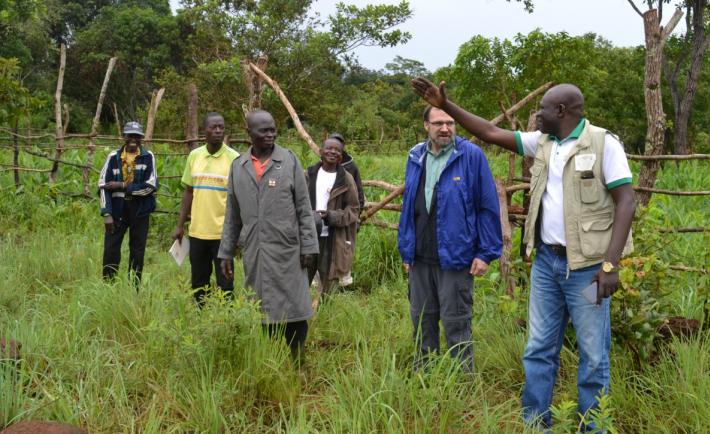
Alain Kinzinguere of NDI partner the Central African Human Rights League (right, gesturing) discusses the benefits of a community-built stockyard (background) with the village chief of Damara (left center in coat).
For more than a year after President Faustin Archange Touadera’s surprise runoff victory, the Central African Republic has been consolidating its nascent democratic institutions, including new ones called for in the 2015 constitution. In contrast with previous governments and legislatures that resulted from flawed elections, no elections, or coups d'etat, Mr. Touadera and the elected National Assembly appear to enjoy popular legitimacy—for now.
This legitimacy, however, is now undergoing its first serious test. A recurring theme I heard from Central Africans during a recent visit is that they expect their political leaders and the international community to put an end to the rising violence committed by armed groups in 14 of the country’s 16 provinces.
Communication Between Citizens and Niger Government Key to an Environment Less Conducive to Violent Extremism
Northern Niger has long been marked by instability and tense relations between citizens and the government, including military forces. The Agadez and Tahoua regions, which harbor the country’s vast uranium resources and most important mining sites, have repeatedly experienced conflicts among traditional pastoralist societies, growing urban communities, mining companies, and central authorities over issues such as the use of land and water resources and the environmental impact of the mining industry. These challenges have been exacerbated by an increasingly volatile security situation in the Sahel -- an arid region of Sub-Saharan Africa south of the Sahara desert. At the crossroads of century-old trade routes, Agadez has become a center for the trafficking of migrants to Europe, arms and drugs. Since the eruption of Mali’s armed conflict and increased incursions of Islamist terrorists into Nigerien territory, the government of President Mahamadou Issoufou has stepped up the presence of military forces in the north. Meanwhile, many citizens feel disenfranchised and frustrated over what they perceive as the government’s failure to provide basic services. Prior to Niger’s February 2016 legislative elections, NDI organized a series of forums where citizens discussed the priorities in their communities with political parties and their local candidates.The forums and ensuing meetings revealed increasing tensions between Niger’s military and the population in the area.
Lebanese Youth Leaders Unite to Advocate for Reform
Youth in Lebanon have not had much opportunity to learn about democracy or how they can be involved in democratic governance. NDI conducted a survey in April 2017 suggesting nearly one-third of the electorate has never voted in parliamentary elections—not because they do not want to, but because parliamentary elections have not been held in the eight years since they became eligible to vote. Yet, despite the challenges they face, many young Lebanese men and women are highly motivated to act to improve their living conditions and basic rights.
New Challenges and Opportunities for Democracy in the Western Hemisphere
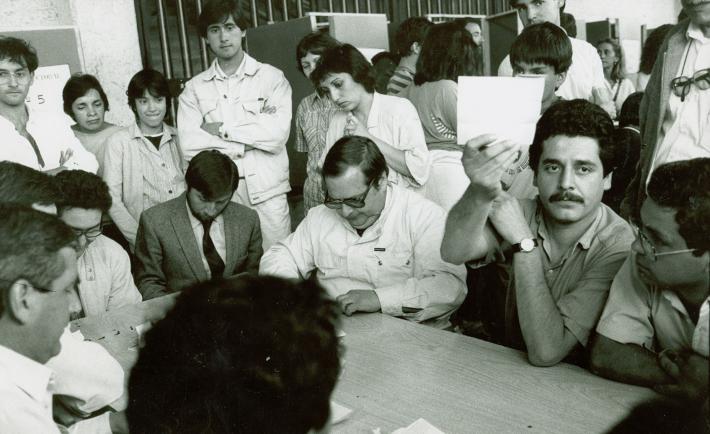
Election workers count votes during Chile’s 1988 plebiscite, which ended Pinochet’s dictatorship. Source: Flickr
When I started out as a junior State Department diplomat at the close of the Carter Administration in the dark days of the Cold War, the state of democracy in Latin America was abysmal. Military dictatorship was the norm throughout the region. During my early State Department years I worked to support, sustain, and contribute to the so-called third wave of democracy in the Americas that helped make the Latin America region, as the Economist recently said, “the most democratic region of the developing world,” behind only North America and Western Europe.
Taking the Road Less Traveled: NDI’s Conflict Transformation Program in Kosovo
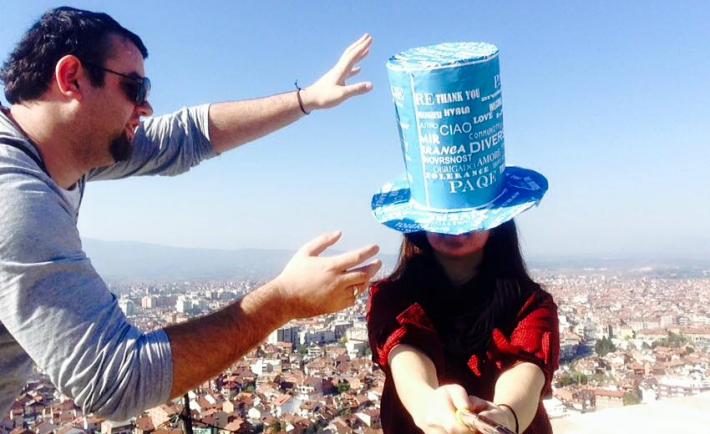
The emerging leaders group 'Diverse Your-Selfie' used this symbol of a hat to promote diversity by taking selfies and posting them to social media networks.
NDI Kosovo recently concluded a more than two-year long program on Conflict Mitigation, aiming -- through its own activities and with the support of its partners -- to cultivate relationships across the country’s divisions, thus easing ethnic tensions in Kosovo. Through the program, more than 600 Kosovars engaged in diverse dynamics across ethnic lines, overcoming their possible post-war fears, prejudices and mistrust, thus establishing rewarding collaboration.

